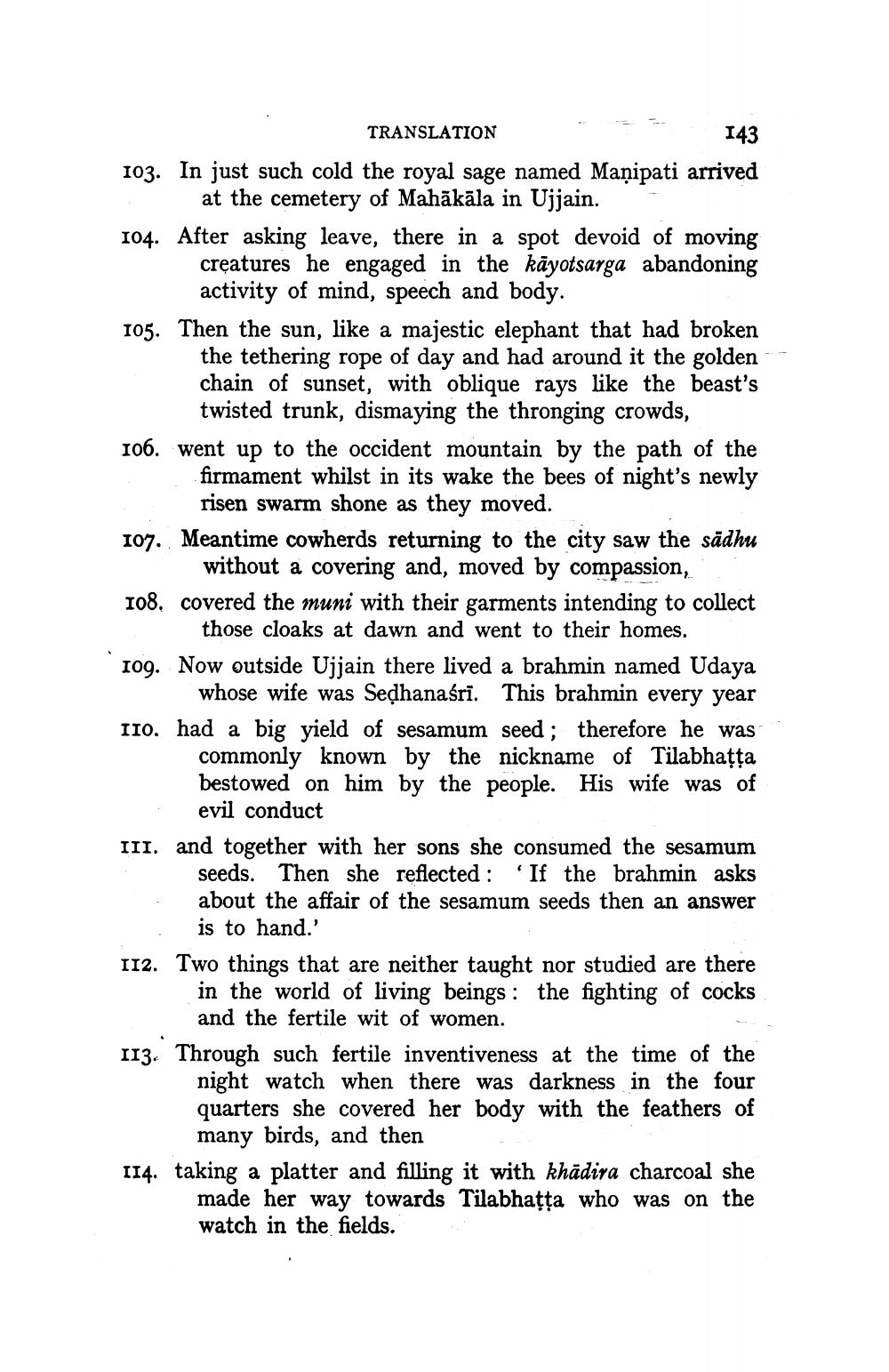________________
143
TRANSLATION 103. In just such cold the royal sage named Manipati arrived
at the cemetery of Mahākāla in Ujjain. 104. After asking leave, there in a spot devoid of moving
creatures he engaged in the kāyotsarga abandoning
activity of mind, speech and body. 105. Then the sun, like a majestic elephant that had broken
the tethering rope of day and had around it the golden chain of sunset, with oblique rays like the beast's
twisted trunk, dismaying the thronging crowds, 106. went up to the occident mountain by the path of the
firmament whilst in its wake the bees of night's newly
risen swarm shone as they moved. 107. Meantime cowherds returning to the city saw the sādhu
without a covering and, moved by compassion, 108, covered the muni with their garments intending to collect
those cloaks at dawn and went to their homes. . 109. Now outside Ujjain there lived a brahmin named Udaya
whose wife was Sedhanaśri. This brahmin every year 110. had a big yield of sesamum seed; therefore he was
commonly known by the nickname of Tilabhatta bestowed on him by the people. His wife was of
evil conduct III. and together with her sons she consumed the sesamum
seeds. Then she reflected: 'If the brahmin asks about the affair of the sesamum seeds then an answer
is to hand.' 112. Two things that are neither taught nor studied are there
in the world of living beings: the fighting of cocks
and the fertile wit of women. 113. Through such fertile inventiveness at the time of the
night watch when there was darkness in the four quarters she covered her body with the feathers of
many birds, and then 114. taking a platter and filling it with khādira charcoal she
made her way towards Tilabhațţa who was on the watch in the fields.




